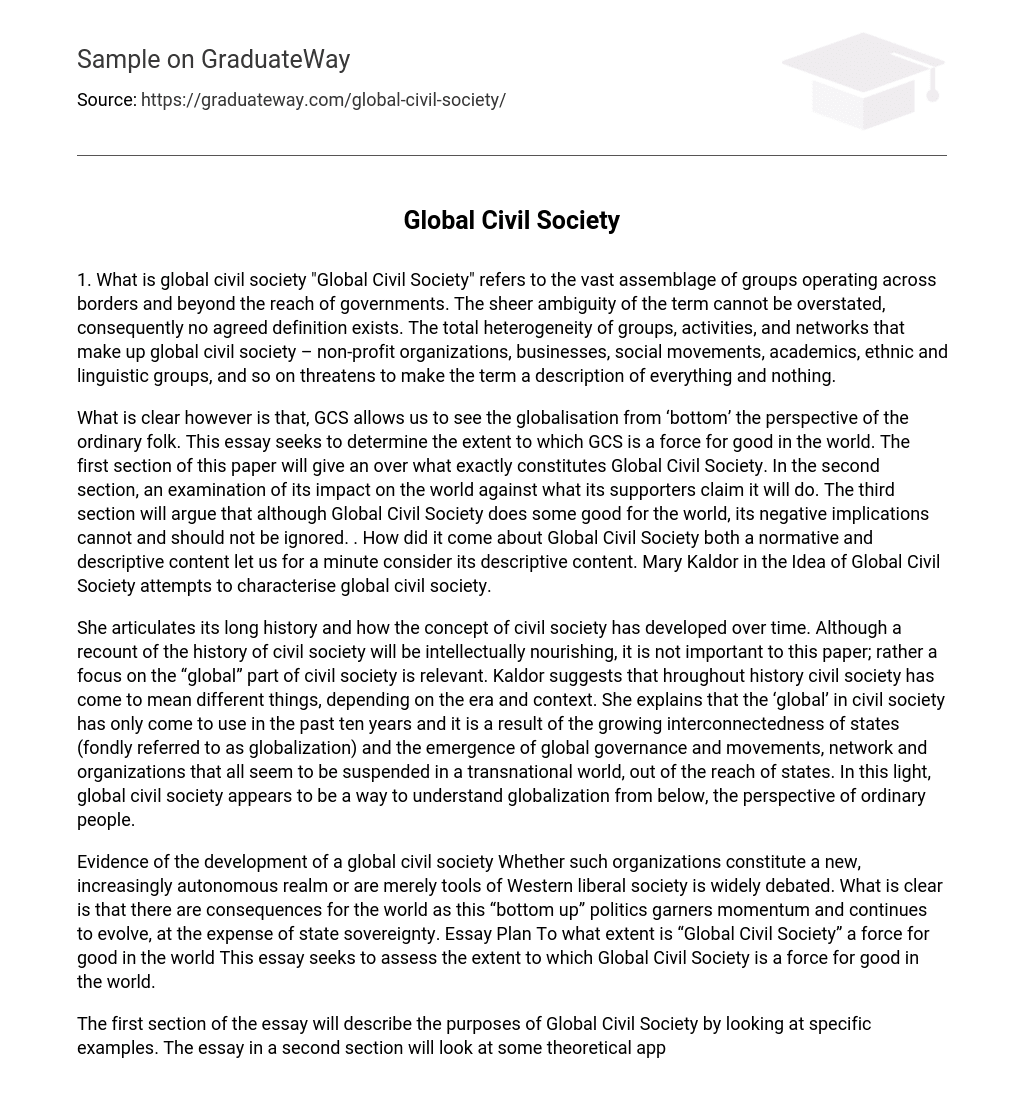This essay seeks to assess the extent to which Global Civil Society is a force for good in the world. The first section of the essay will describe the purposes of Global Civil Society by looking at specific examples. The essay in a second section will look at some theoretical approaches to Global Civil Society. The third section of the essay will then assess whether Global Civil Society does any good in the world.
With regards to assessing the extent to which Global Civil Society GCS is a force for good, one must first consider what it purpose or role is in the world. What you see in GCS depends on what value lens you use to define it. For the purpose of this essay, we shall adopt a liberal ideal of GCS because that is the norm in the international system. Pertinent to the assessment of GCS a concise definition would to useful. “Global Civil Society” refers to the vast assemblage of groups operating across borders and beyond the reach of governments. The sheer ambiguity of the term cannot be overstated, consequently no agreed definition exists.
The total heterogeneity of groups, activities, and networks that make up global civil society – non-profit organizations, businesses, social movements, the media, academics, ethnic and linguistic groups, and so on threatens to make the term a description of everything and nothing. Since the end of the Cold War, the world has been faced with a new phenomenon fondly referred to as globalisation. This is “an umbrella term for a complex series of economic, social, technological, and political changes seen as increasing interdependence and interaction between people and companies in disparate locations.
In other words, the world is becoming increasingly interconnected and interdependent to the extent that an event in one part of the world can cause a domino effect in several parts of the world. With this new phenomenon a new norm emerged – liberal democracy; this new norm had consequences for the international system as a whole because the thinking which shaped its legal rules and institutions had changed. The protection of human rights became one of the most salient issues in the international system as these new norms reflected liberal values.
Therefore human security became of paramount importance and issue “that range from pandemics, such as HIV/AIDS, and environmental degradation through to more readily associated security concerns of direct violence, such as terrorism and intra state armed conflict”became new security concerns. The range of human security issues share one common feature, they have no geographical locus, thus one can naturally assume that these problems need some form of international cooperation to solve them as they affect the entire human race.
This has led some like the Liberals to contend that the traditional nation-state model cannot solve the problems and we need to appeal to the greater cooperation of the international system to find answers. The cosmopolitans go a step further to advocate for an international community where all humans would be subject to one political authority. Some scholars argue that Global Civil Society fills in the gap that national governments are unwilling or unable to when it comes to the protection of human rights.





